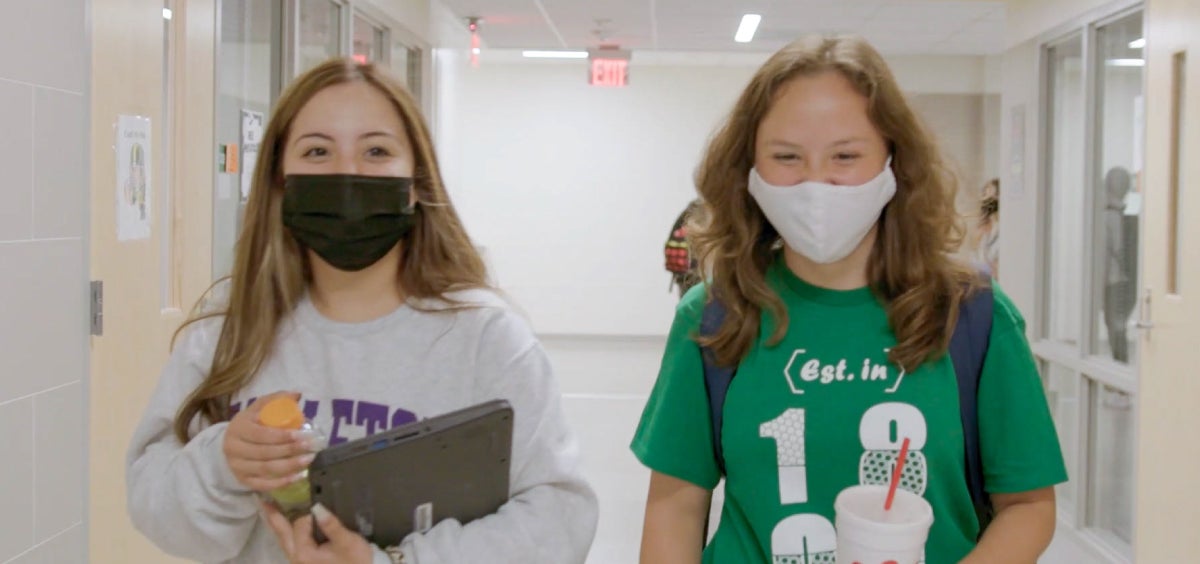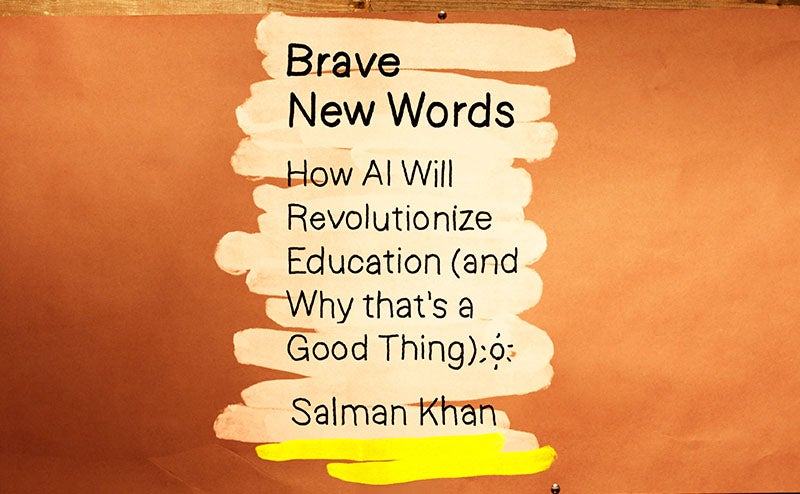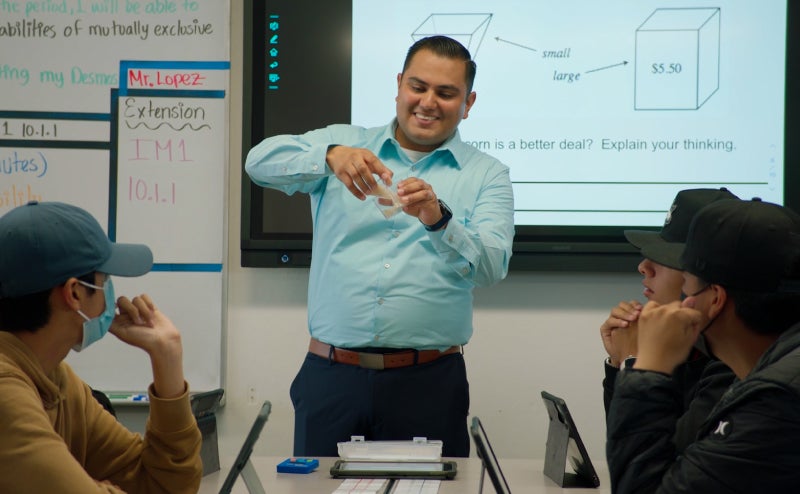Satya has a lot of interesting things to say about the transformation of both Microsoft and the tech industry at large.
A year ago, Stephanie Galaviz and Victoria Whitaker, seniors at Western Hills High School in Fort Worth, Texas, had no plans to go to college.
Stephanie worried about going into debt to pay for school.
Victoria was intimidated by the application process and feared getting rejected.
Like thousands of other high school students, they also found that the barriers they faced in applying to college were made even worse by school closures, virtual classes, and other disruptions to their studies because of COVID-19.
Then they met Valerie Gonzalez from the College Advising Corps.
The College Advising Corps places recent college graduates into high schools where they work, in partnership with school counseling programs, to provide guidance and support to students during the difficult transition from high school to college.
I’ve written before about how a college degree is critical for success in today’s job market. (And I’m using “college” here as shorthand for any kind of postsecondary degree or professional certificate.) But not enough students from low-income backgrounds, the majority of whom are students of color, are completing them. Only 22 percent of students from low-income communities earn a postsecondary degree, compared to 67 percent of their peers from high-income areas, according to OneGoal, an organization focused on helping students overcome the barriers they face on the path to college. The impact of this disparity is far reaching. Hundreds of thousands of young people are entering adulthood without the skills, experiences, and credentials needed to build careers.
I met Valerie, Stephanie, and Victoria earlier this year as part of a learning session about how the CAC, which our foundation supports, was helping students stay on the path to a college degree.
There are many reasons why students don’t go to college or pursue a postsecondary degree. But one common obstacle is the need for more counseling and advising supports to help students navigate the complex application process. Currently, the average ratio of students-to-counselors in public high schools is 424 to 1.
These support services are critical, especially for students who are the first in their family to go to college, like Stephanie and Victoria. They need help choosing schools, filling out application forms, writing essays, and taking advantage of the financial aid that’s available.
This is the incredibly important work that CAC advisers like Valerie do. Valerie, the daughter of migrant farm workers, is a first-generation college graduate herself. Her own struggles to apply to college now drive her passion for helping other first generation college students achieve their own dreams.
A large part of her job, she says, is to help students see themselves as college students. Many students don’t think they’re college material. She encourages them to think again and dream about the many careers a degree could help them pursue.
At Western Hills High School, Valerie and her team of advisers make it a goal to meet with all seniors at least once to discuss their plans after graduation. Finding time to talk with hundreds of students can be difficult enough in normal times. During the pandemic lockdowns, when schools shifted to virtual classes and lost contact with many students, it became an even bigger challenge.
Valerie, for example, told me that she tried to meet with Stephanie and Victoria in every way she could. She emailed, texted, and called. When the lockdowns ended, she went to their homes.
Both Victoria and Stephanie ignored Valerie. But eventually they decided they should meet with her—in part to get her to stop bothering them.
Those first meetings changed everything.
Stephanie was surprised to learn that there were scholarships, grants, and other financial aid options available for her to help pay for college. She suddenly realized that college could be an option for her.
Victoria was relieved to hear that Valerie was ready to help her fill out application forms and assured her that with her good grades there were many colleges that would be eager to have her as a student.
Within weeks of that first meeting, Stephanie and Victoria submitted their college applications. And they soon learned they got accepted.
Stephanie just started at Tarleton University in Stephenville, Texas. Victoria is now in her first year at Tarrant County College, with plans to transfer to University of North Texas in Denton, Texas.
I’m thrilled by what Stephanie and Victoria have achieved, especially during COVID. I’m also encouraged by the impact CAC is having nationwide. Advisers like Valerie are serving 246,000 students at nearly 850 high schools across 19 states in 2021-22. Students they met with were 18 percent more likely to apply to a college or university and 19 percent more likely to get in.
To help students navigate COVID-19 roadblocks, our foundation has also expanded our partnerships with two other organizations. City Year places what they call “student success coaches” into high schools to provide role models, offer encouragement, and help students make decisions that keep them on track for college.Saga Education supports math tutors in high schools, where they work with students who need help with algebra, and gives the students access to an online learning platform.
We’re also supporting statewide efforts to improve enrollment in college and postsecondary programs. In Texas, for example, the Texas Higher Education Coordinating Board partners with the College Advising Corps, TCU, Trinity, Texas A&M, and UT Austin to implement a program called Advise TX. It is seeking to scale up advising services throughout the state with the goal of increasing the number of low-income students who complete college degrees.
These initiatives are part of a larger effort at our foundation to ensure that young people have the tools, resources, and services they need to not only make it to college, but also to help them succeed in a career, achieve financial stability, and make meaningful contributions to their community. You can learn more about this program, called Pathways, here.
This program is already making it possible for students like Stephanie and Victoria to realize their dreams. And I hope it will do the same for millions of students to come in the years ahead.





